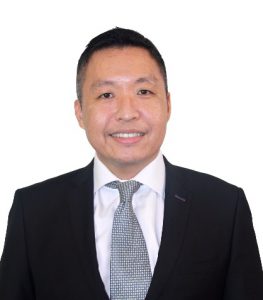
|
Review: 3Q21 was sluggish, with the STI down 1.4%. Despite a jump in vaccination rates to 82% of the population in September, COVID-19 cases in Singapore spiked to record highs. Dining and office restrictions returned. The virus also triggered record high cases in Southeast Asia. This hurt regional consumer stocks on the STI, namely the Jardine Group of companies (Figure 2). Of the 30 STI names, only nine made gains during the quarter. Restructuring themes outperformed, namely CapitaLand Investment and Singtel (Figure 3). |
|
Outlook: Inflation is increasing in the global economy, especially in the U.S. Major inflation indicators are at decade highs with little signs of abating. Even after three rounds of quantitative easing (QE) from 2008 to 2012, money supply hardly budged. The current QE4 combined with fiscal stimulus has resulted in an unprecedented spike in liquidity into the real economy (Figure 4). Cost pressures are building up for manufacturers and consumers, from commodity prices (Figure 5), PMI inputs (Figure 6), transport (Figure 7) and energy (Figure 8). While not runaway, inflation is likely to be higher than market expectations. We see upside risk for interest rates. Bond yields are historically too low compared to core inflation in the U.S. (Figure 9). Since the 1960s, investors have been demanding real returns in interest rates that exceed inflation (or CPI). The repricing of higher interest rates forms the macro backdrop for our equity strategy. Prime beneficiaries of higher interest rates will be financials: banks for their variable-rate loans and excess deposits, and SGX for its collateral float from derivatives clearing members of S$13bn. Our STI target is unchanged at 3400. We remain positive on the re-opening trade. COVID-19 is now a pandemic for the unvaccinated. Vaccinations globally could hit 50% by year-end, with developed countries leading the way at 65-70% (Figure 10). Countries are cautiously re-opening borders for the vaccinated. Domestic travel and hospitality should enjoy a huge rebound when travel is relaxed (Figure 11). As vaccinations expand globally to include the young and anti-viral drugs are approved for use, we expect even more aggressive global re-openings. |
|
Recommendation: We favour financials. Asset reflation, economic recoveries and rising interest rates will be major tailwinds for banks. Another sector that will likely benefit is property. Rising residential property prices in Singapore are backed by affordability, still-low interest rates and increasing replacement costs. The property price index has risen around 7% over the past 12-months, a shade below its high-single-digit growth before cooling measures kicked in. Furthermore, over the past eight years, the index was only up 6.7% (Figure 12). Our pick is City Development (CDL SP, BUY, TP S$9.19). It is the largest listed Singapore residential developer. Its stock has been languishing at multi-year lows despite a S$3bn pipeline of residential projects, a potential recovery for its 152 hotels and the potential monetisation of UK commercial assets through a REIT. Ultimately, the largest catalyst for the STI will be a complete re-opening of borders. Tourist arrivals this year were a pathetic 153k. The number was 19mn in 2019. Many sectors will enjoy an uplift when travellers return. Primary beneficiaries will be hospitality, travel, malls and even telecommunications. We recommend investors to stick to this theme, despite the disappointment so far. High vaccination rates have not resulted in “freedom days”. Instead, the recent spike in cases has placed a huge burden on the country’s healthcare infrastructure (Figure 13). This is being addressed, with living with an endemic COVID-19 being the goal. |
We recently initiated coverage on HRnetGroup, one of the largest recruitment (permanent and temp) agencies in the region. This is a company with a rare ROE of above 100%, net cash of S$300mn and 4% dividend yield. It is also benefiting from an upswing in job hirings (Figure 14). Scale, track record and balance sheet are its competitive advantages over smaller peers.
Important Information
This report is prepared and/or distributed by Phillip Securities Research Pte Ltd ("Phillip Securities Research"), which is a holder of a financial adviser’s licence under the Financial Advisers Act, Chapter 110 in Singapore.
By receiving or reading this report, you agree to be bound by the terms and limitations set out below. Any failure to comply with these terms and limitations may constitute a violation of law. This report has been provided to you for personal use only and shall not be reproduced, distributed or published by you in whole or in part, for any purpose. If you have received this report by mistake, please delete or destroy it, and notify the sender immediately.
The information and any analysis, forecasts, projections, expectations and opinions (collectively, the “Research”) contained in this report has been obtained from public sources which Phillip Securities Research believes to be reliable. However, Phillip Securities Research does not make any representation or warranty, express or implied that such information or Research is accurate, complete or appropriate or should be relied upon as such. Any such information or Research contained in this report is subject to change, and Phillip Securities Research shall not have any responsibility to maintain or update the information or Research made available or to supply any corrections, updates or releases in connection therewith.
Any opinions, forecasts, assumptions, estimates, valuations and prices contained in this report are as of the date indicated and are subject to change at any time without prior notice. Past performance of any product referred to in this report is not indicative of future results.
This report does not constitute, and should not be used as a substitute for, tax, legal or investment advice. This report should not be relied upon exclusively or as authoritative, without further being subject to the recipient’s own independent verification and exercise of judgment. The fact that this report has been made available constitutes neither a recommendation to enter into a particular transaction, nor a representation that any product described in this report is suitable or appropriate for the recipient. Recipients should be aware that many of the products, which may be described in this report involve significant risks and may not be suitable for all investors, and that any decision to enter into transactions involving such products should not be made, unless all such risks are understood and an independent determination has been made that such transactions would be appropriate. Any discussion of the risks contained herein with respect to any product should not be considered to be a disclosure of all risks or a complete discussion of such risks.
Nothing in this report shall be construed to be an offer or solicitation for the purchase or sale of any product. Any decision to purchase any product mentioned in this report should take into account existing public information, including any registered prospectus in respect of such product.
Phillip Securities Research, or persons associated with or connected to Phillip Securities Research, including but not limited to its officers, directors, employees or persons involved in the issuance of this report, may provide an array of financial services to a large number of corporations in Singapore and worldwide, including but not limited to commercial / investment banking activities (including sponsorship, financial advisory or underwriting activities), brokerage or securities trading activities. Phillip Securities Research, or persons associated with or connected to Phillip Securities Research, including but not limited to its officers, directors, employees or persons involved in the issuance of this report, may have participated in or invested in transactions with the issuer(s) of the securities mentioned in this report, and may have performed services for or solicited business from such issuers. Additionally, Phillip Securities Research, or persons associated with or connected to Phillip Securities Research, including but not limited to its officers, directors, employees or persons involved in the issuance of this report, may have provided advice or investment services to such companies and investments or related investments, as may be mentioned in this report.
Phillip Securities Research or persons associated with or connected to Phillip Securities Research, including but not limited to its officers, directors, employees or persons involved in the issuance of this report may, from time to time maintain a long or short position in securities referred to herein, or in related futures or options, purchase or sell, make a market in, or engage in any other transaction involving such securities, and earn brokerage or other compensation in respect of the foregoing. Investments will be denominated in various currencies including US dollars and Euro and thus will be subject to any fluctuation in exchange rates between US dollars and Euro or foreign currencies and the currency of your own jurisdiction. Such fluctuations may have an adverse effect on the value, price or income return of the investment.
To the extent permitted by law, Phillip Securities Research, or persons associated with or connected to Phillip Securities Research, including but not limited to its officers, directors, employees or persons involved in the issuance of this report, may at any time engage in any of the above activities as set out above or otherwise hold an interest, whether material or not, in respect of companies and investments or related investments, which may be mentioned in this report. Accordingly, information may be available to Phillip Securities Research, or persons associated with or connected to Phillip Securities Research, including but not limited to its officers, directors, employees or persons involved in the issuance of this report, which is not reflected in this report, and Phillip Securities Research, or persons associated with or connected to Phillip Securities Research, including but not limited to its officers, directors, employees or persons involved in the issuance of this report, may, to the extent permitted by law, have acted upon or used the information prior to or immediately following its publication. Phillip Securities Research, or persons associated with or connected to Phillip Securities Research, including but not limited its officers, directors, employees or persons involved in the issuance of this report, may have issued other material that is inconsistent with, or reach different conclusions from, the contents of this report.
The information, tools and material presented herein are not directed, intended for distribution to or use by, any person or entity in any jurisdiction or country where such distribution, publication, availability or use would be contrary to the applicable law or regulation or which would subject Phillip Securities Research to any registration or licensing or other requirement, or penalty for contravention of such requirements within such jurisdiction.
This report is intended for general circulation only and does not take into account the specific investment objectives, financial situation or particular needs of any particular person. The products mentioned in this report may not be suitable for all investors and a person receiving or reading this report should seek advice from a professional and financial adviser regarding the legal, business, financial, tax and other aspects including the suitability of such products, taking into account the specific investment objectives, financial situation or particular needs of that person, before making a commitment to invest in any of such products.
This report is not intended for distribution, publication to or use by any person in any jurisdiction outside of Singapore or any other jurisdiction as Phillip Securities Research may determine in its absolute discretion.
IMPORTANT DISCLOSURES FOR INCLUDED RESEARCH ANALYSES OR REPORTS OF FOREIGN RESEARCH HOUSE
Where the report contains research analyses or reports from a foreign research house, please note:

Paul has 20 years of experience as a fund manager and sell-side analyst. During his time as fund manager, he has managed multiple funds and mandates including capital guaranteed, dividend income, renewable energy, single country and regionally focused funds.
He graduated from Monash University and had completed both his Chartered Financial Analyst and Australian CPA programme.